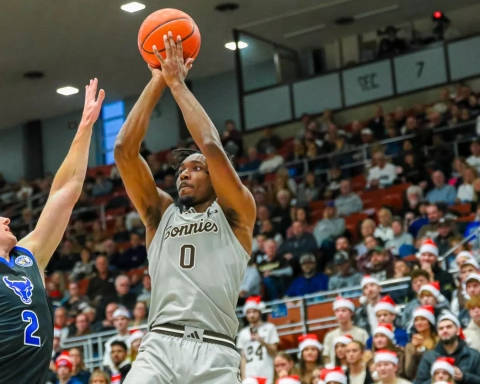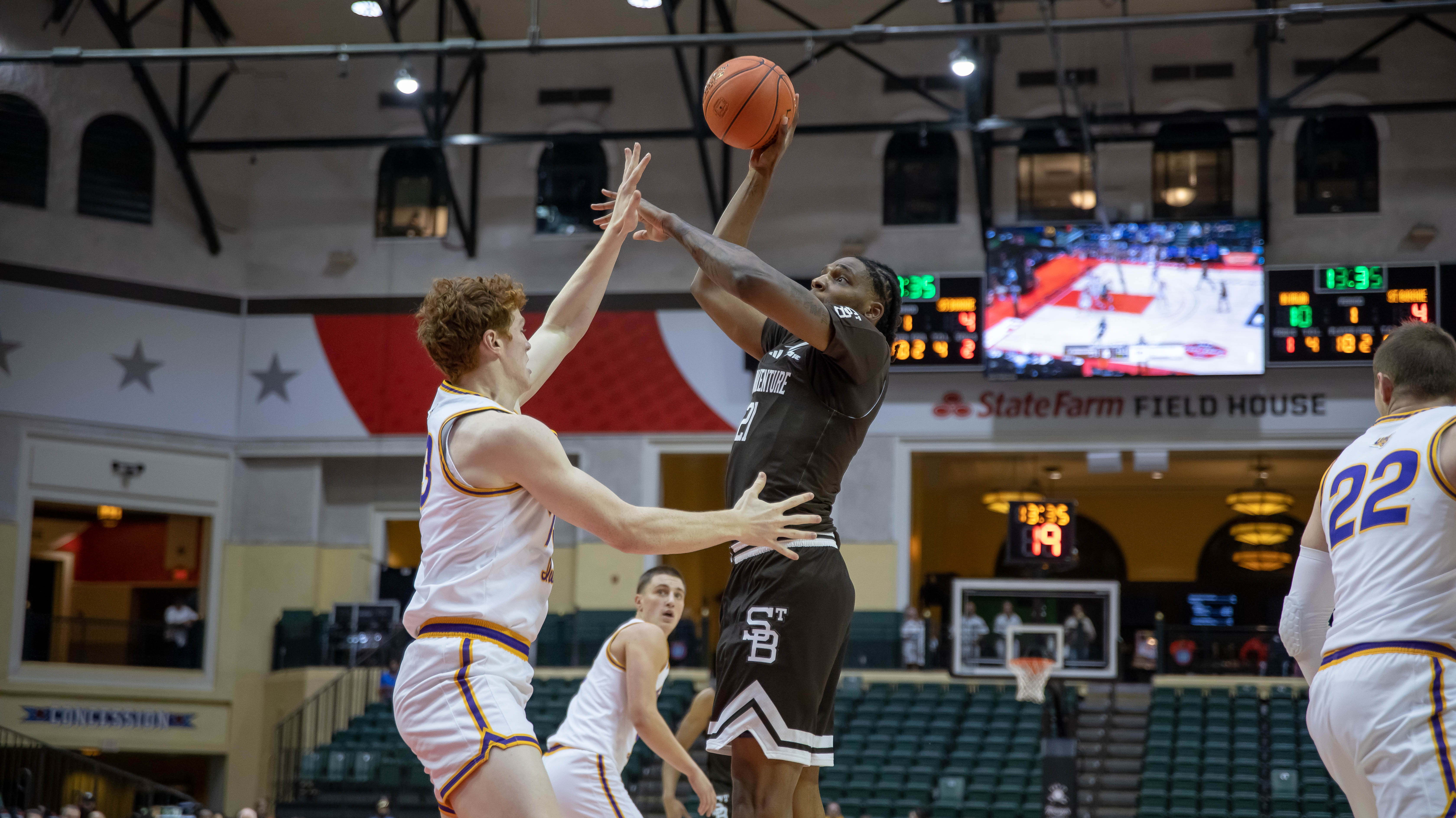By Ryan DeOrdio
Staff Writer
Some see an undecipherable language: an unsolved mystery that causes the worst kind of tension. Others see an epic jigsaw puzzle that’s practically and personally rewarding. Regardless if one’s to evade or embrace it, math is a universal challenge.
St. Bonaventure University has 15 math majors and five math minors, according to Tom Missel, the university’s director of media relations and marketing.
All St. Bonaventure students, regardless of major, are required to take at least one quantitative reasoning course, according to the university’s undergraduate catalog. Required quantitative reasoning courses differ by major, with bioinformatics majors required to take the most math credits, 20, of any non-math major.
Matt Zaros, a junior history major, said he finds math interesting, but difficult.
“The fact (mathematicians) can use math to figure things out in the universe is amazing,” Zaros said. “I’m not really good at it. I like to write.”
Zaros’ sentiments aren’t rare. A University of Exeter survey suggests a majority of U.S. adults think math is “difficult” or “boring.” These negative views are reflected in national results. In international competition, the United States isn’t on the winner’s podium in math. In fact, the U.S. doesn’t even medal, ranking 31st “among wealthy nations” in standardized math test scores, according to a June 14, 2012 Timesfreepress.com article.
Associate math professor Maureen Cox, who’s in her 17th year at St. Bonaventure University, said most Bonaventure students don’t understand math sufficiently.
Like math, understanding the problem is complex.
“Without knowing what happened in a student’s prior education, I can’t really say why a particular person may not have adequate skills,” Cox said. “Everyone’s history is different.”
Professor Chris Hill attempted to address students’ math malaise by offering a math literacy course in the fall 2012 semester, according to Cox.
“The proposal to make the course official under the number Math 135 is making its way through the appropriate channels and should be official before the semester ends,” Cox said.
Associate math professor Chris Leary, who’s taught at St. Bonaventure for 28 years, thinks culture is responsible for U.S. math struggles.
“The United States tends to be anti-intellectual,” Leary said. “The countries of Europe, Asia, and the Middle East have intellectual histories that go back millennia, whereas ours spans but a few centuries. In the U.S., it is socially acceptable to profess ineptitude in mathematics, even to brag about one’s ineptness.”
St. Bonaventure University adolescent education graduate student Chloe Koerner-Priester, who has a bachelor’s degree in mathematics, has personal experience with America’s negative math perception.
“I’m not particularly talented in math, only insatiably curious,” Koerner-Preister said.
“Some of my peers appreciate my passion and perceived abilities and want to pick my mind to try to understand why I enjoy something that they don’t. Others write it off as an anomaly and think that I am some type of super-nerd.”
Despite these obstacles, math teachers and students remain optimistic.
“The most rewarding part of working with students is being there when they finally ‘get it,’” Leary said.
“It’s beautiful,” Koerner-Priester said. “That brief moment when you realize you finally achieved what you wanted is like an explosion of excitement. You feel like a champion.”
Math’s difficulty makes the subject satisfying for Koerner-Priester.
“My honors project was actually one problem that took me over a year to complete, and I could still be perfecting it if I had the time,” she said.
Koerner-Priester’s honors project examined isomorphism in the hyperbolic plane, an aspect of hyperbolic geometry. She described hyperbolic geometry as the world being changed from living in a flat plane to living in a bowl.
Majoring in math at St. Bonaventure is fulfilling in itself, according to Koerner-Priester.
“There are some very strong math students here that I have encountered and whose minds I’ve envied,” she said. “It’s like you get to be a part of a very elite club. I loved staying up until 3 a.m. with people that were in my math classes just to solve a problem set.”
In addition, math careers pay well, according to Cox.
“There are many well-paying careers that can be pursued if one has a strong mathematics background,” she said.
Math may be more important to some than others, according to Leary.
“It is vital for some people,” he said. “For anyone in a science, or for people in finance, mathematics has become almost indispensable.”
However, Koerner-Priester thinks the value of math is unequaled.
“Math is everywhere, sure, but math is also everything,” she said. “It is, to me, the key to understanding the world. Math is a spiritual journey that we can take using logic as our guide.”








